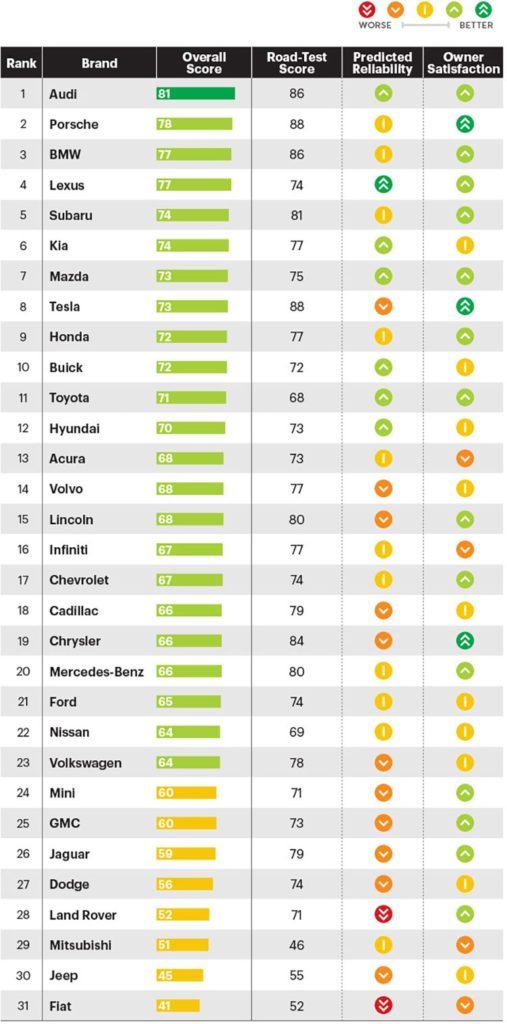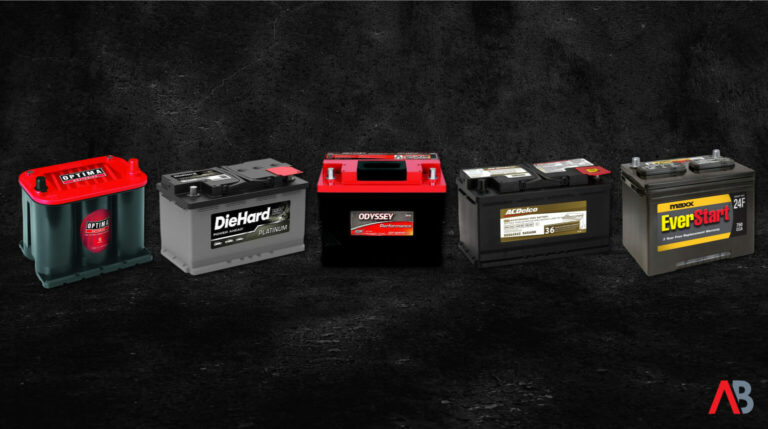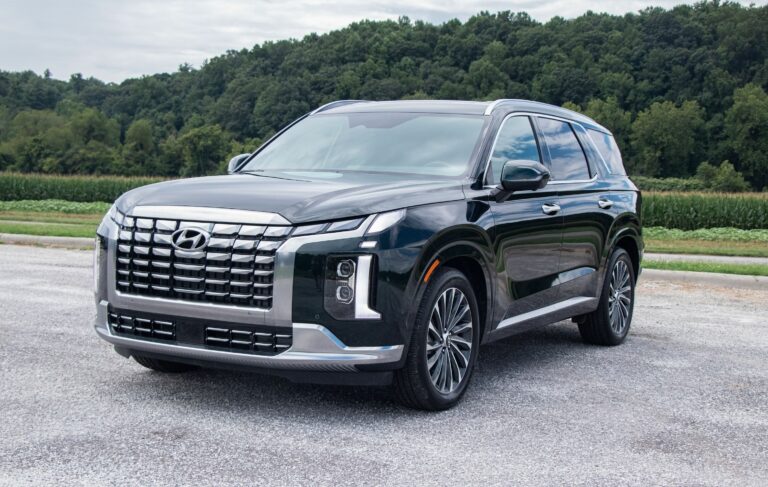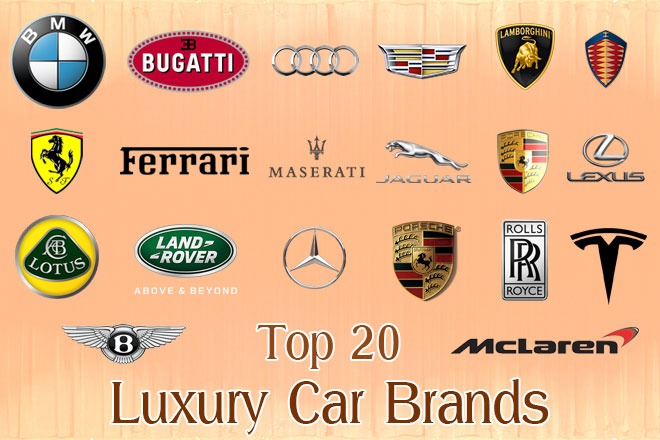Great Car Brands: A Comprehensive Guide to Automotive Excellence
Great Car Brands: A Comprehensive Guide to Automotive Excellence cars.truckstrend.com
In the vast and ever-evolving world of automobiles, certain names resonate with an undeniable aura of quality, innovation, and desirability. These are the "Great Car Brands"—manufacturers that have consistently pushed the boundaries of engineering, design, and customer experience, earning a revered status in the eyes of consumers and critics alike. A great car brand is more than just a logo; it represents a legacy of excellence, a commitment to safety and performance, and often, a promise of a superior driving experience. Understanding what defines these brands, their diverse offerings, and how they cater to various needs is crucial for anyone looking to make an informed decision in the automotive market.
This comprehensive guide will delve into the essence of great car brands, exploring the hallmarks of their success, categorizing their unique strengths, and offering practical advice for navigating the exciting journey of selecting a vehicle from their esteemed lineups.
Great Car Brands: A Comprehensive Guide to Automotive Excellence
The Hallmarks of Greatness: What Defines a Premier Car Brand?
What elevates a car brand from good to great? It’s a confluence of factors, meticulously cultivated over decades, sometimes even centuries.
- Unwavering Reliability and Durability: At its core, a great car brand builds vehicles that last. This means meticulous engineering, rigorous testing, and high-quality materials that stand the test of time, reducing unexpected breakdowns and costly repairs. Brands like Toyota and Honda have built their reputation almost entirely on this pillar.
- Pioneering Innovation and Technology: Great brands are not content with the status quo. They invest heavily in research and development, introducing cutting-edge technologies that enhance performance, safety, efficiency, and connectivity. This includes advancements in powertrains (EVs, hybrids), autonomous driving features, advanced infotainment systems, and new manufacturing processes. Tesla, Mercedes-Benz, and Audi are prime examples of innovation leaders.
- Exceptional Design and Craftsmanship: Aesthetics play a significant role. Great car brands produce vehicles that are not only functional but also beautiful, inside and out. This involves thoughtful exterior styling, ergonomic and luxurious interiors, and an obsessive attention to detail in material selection and finish. Brands like Porsche, Lexus, and Volvo exemplify this commitment to design and quality craftsmanship.
- Superior Performance and Driving Dynamics: Whether it’s raw power, precise handling, or a smooth, comfortable ride, great brands deliver a driving experience that consistently exceeds expectations. This often involves advanced suspension systems, powerful yet efficient engines, and sophisticated traction control. BMW, Porsche, and Audi are renowned for their driving dynamics.
- Commitment to Safety: Leading brands prioritize the safety of their occupants and pedestrians. They integrate advanced passive safety features (stronger chassis, multiple airbags) with active safety technologies (ADAS – Advanced Driver-Assistance Systems like automatic emergency braking, lane-keeping assist, blind-spot monitoring). Brands like Volvo and Subaru have long been synonymous with safety.
- Strong Brand Heritage and Reputation: Many great car brands boast a rich history of automotive achievement, contributing to a powerful brand identity and a loyal customer base. This heritage often imbues their vehicles with a sense of tradition, prestige, and proven excellence. Brands like Ford, Chevrolet, and Ferrari embody this historical significance.
- Outstanding Customer Service and Ownership Experience: Beyond the vehicle itself, a great brand ensures a seamless and satisfying ownership journey. This includes a robust dealership network, readily available parts, comprehensive warranty programs, and responsive customer support. The overall experience, from purchase to maintenance, is designed to instill confidence and loyalty.
- High Resale Value: A testament to their quality and desirability, vehicles from great car brands often retain a higher percentage of their original value over time, offering a better return on investment for owners.

Navigating the Landscape: Categories of Great Car Brands

The world of great car brands can be broadly categorized based on their primary strengths, target audience, and market positioning:
- Luxury & Performance Dynasties (e.g., Mercedes-Benz, BMW, Audi, Lexus, Porsche): These brands are synonymous with opulence, cutting-edge technology, and exhilarating performance. They cater to discerning buyers who prioritize premium materials, sophisticated features, superior comfort, and often, high-horsepower engines. While their price tags are higher, they offer an unparalleled driving and ownership experience.
- Reliability & Value Champions (e.g., Toyota, Honda, Subaru, Mazda): These brands have built their reputation on building dependable, fuel-efficient vehicles that offer excellent value for money. They are known for low maintenance costs, high resale values, and a practical approach to automotive design. They cater to a broad audience seeking peace of mind and long-term ownership satisfaction.
- American Icons & Utility Leaders (e.g., Ford, Chevrolet, Jeep, Ram): These brands represent the backbone of American automotive manufacturing, known for their robust trucks, powerful muscle cars, and versatile SUVs. They often embody ruggedness, capability, and a strong sense of national identity. They cater to those who need serious towing capacity, off-road prowess, or classic American performance.
- Innovation & Electric Pioneers (e.g., Tesla, Hyundai, Kia, Volvo): While innovation is a hallmark across the board, some brands are particularly recognized for pushing boundaries in specific areas, most notably electric vehicles and sustainable technologies. Tesla revolutionized the EV market, while Hyundai and Kia have rapidly expanded their EV and hybrid offerings with impressive technology and design. Volvo leads in safety and has a strong commitment to electrification.
- Ultra-Luxury & Exotics (e.g., Ferrari, Lamborghini, Rolls-Royce, McLaren): These brands occupy the pinnacle of automotive desire, producing highly exclusive, handcrafted vehicles that are engineering marvels and works of art. They cater to an elite clientele and represent the ultimate expression of performance, luxury, and bespoke craftsmanship.

Beyond the Badge: Key Considerations When Choosing Your Next Vehicle
Even within the realm of great car brands, the "best" choice is highly subjective and depends entirely on your individual needs, preferences, and lifestyle. Here are crucial factors to consider:
- Budget (Purchase Price & Total Cost of Ownership): Look beyond the sticker price. Factor in insurance, fuel/charging costs, routine maintenance, and potential repair costs. Brands known for reliability often have lower long-term ownership costs.
- Lifestyle and Needs:
- Commuting: Fuel efficiency, comfort, and advanced driver-assist features might be key.
- Family: Space, safety ratings, child seat compatibility, and cargo volume are paramount.
- Adventure/Utility: Ground clearance, AWD/4WD, towing capacity, and cargo flexibility become important.
- Performance: Engine power, handling dynamics, and responsive braking will be priorities.
- Safety Features: Modern vehicles from great brands offer a suite of active and passive safety technologies. Research crash test ratings (NHTSA, IIHS) and the availability of ADAS features like adaptive cruise control, lane-keeping assist, and automatic emergency braking.
- Technology & Infotainment: Consider the user-friendliness of the infotainment system, connectivity options (Apple CarPlay, Android Auto), navigation, and advanced features like heads-up displays or digital instrument clusters.
- Fuel Efficiency / Electric Range: With rising fuel costs and environmental concerns, efficiency is a major factor. Decide between gasoline, hybrid, plug-in hybrid (PHEV), or full electric vehicles (EVs) based on your driving habits and access to charging infrastructure.
- Resale Value: A higher resale value means less depreciation over time, which can save you money when you eventually sell or trade in the vehicle. Brands known for reliability and desirability often excel here.
- Brand Reputation & Dealer Experience: Research online reviews for both the brand and local dealerships. A positive relationship with your service center can significantly enhance your ownership experience.
- Test Drive: Always test drive multiple vehicles that fit your criteria. Pay attention to comfort, visibility, handling, acceleration, braking, and noise levels. This is the most crucial step in confirming a car feels right for you.
The Road Ahead: Challenges and Innovations in the Automotive Industry
Great car brands are not static; they are constantly evolving to meet new demands and overcome challenges.
- The Electric Revolution: The shift from internal combustion engines (ICE) to electric vehicles (EVs) is the most significant transformation in the industry’s history. Great brands are investing billions in EV platforms, battery technology, and charging infrastructure, aiming to offer compelling electric alternatives across their lineups.
- Autonomous Driving: While fully autonomous vehicles are still some way off, great brands are steadily integrating more advanced driver-assistance systems, paving the way for a future where cars can drive themselves.
- Sustainability: Beyond EVs, brands are focusing on sustainable manufacturing processes, using recycled materials, and reducing their carbon footprint across the supply chain.
- Connectivity and Software-Defined Vehicles: Modern cars are becoming mobile computing platforms. Great brands are enhancing connectivity features, offering over-the-air (OTA) updates, and integrating advanced software that allows for customization and new functionalities throughout the vehicle’s life.
- Global Competition: The automotive landscape is increasingly competitive, with new players emerging from technology sectors and traditional manufacturers expanding their global reach. Great brands must continually innovate and differentiate to maintain their market position.
Making an Informed Decision: Practical Steps for Car Buyers
- Define Your Needs: Be clear about your primary use case, desired features, and non-negotiables.
- Set a Realistic Budget: Don’t just consider the purchase price, but also ongoing costs.
- Research Extensively: Utilize reputable automotive review sites, consumer reports, and owner forums. Compare models from different great brands that fit your criteria.
- Prioritize Safety: Look for high safety ratings and comprehensive ADAS packages.
- Schedule Test Drives: This is non-negotiable. Drive the cars in conditions similar to your daily commute.
- Consider Certified Pre-Owned (CPO): A CPO vehicle from a great brand can offer significant savings while still providing warranty coverage and peace of mind.
- Negotiate Smartly: Be prepared to negotiate the price, trade-in value, and financing terms.
- Understand the Warranty and Service Plan: Know what’s covered and for how long, and assess the accessibility of service centers.
Representative Price Ranges by Vehicle Type from Great Brands
It’s impossible to put a single "price" on "Great Car Brands" as a concept. Instead, here’s a table illustrating typical starting price ranges for various vehicle types offered by these esteemed manufacturers, reflecting the diverse segments they cover. Prices can vary significantly based on trim level, optional features, and region.
| Vehicle Type / Segment | Representative Great Brands | Typical Starting Price Range (USD) | Key Features / Why People Buy |
|---|---|---|---|
| Subcompact/Compact Sedans & Hatchbacks | Honda, Toyota, Mazda, Hyundai, Kia | $20,000 – $30,000 | Fuel efficiency, urban maneuverability, reliability, affordability. Ideal for commuters and first-time buyers. |
| Mid-Size Sedans | Toyota, Honda, Hyundai, Kia, Mazda, Subaru, Ford, Chevrolet | $25,000 – $40,000 | Balanced performance, comfortable ride, good space, reliability. Popular for families and daily drivers. |
| Compact SUVs | Toyota, Honda, Subaru, Hyundai, Kia, Mazda, Ford, Chevrolet | $26,000 – $45,000 | Versatility, elevated driving position, cargo space, optional AWD. Excellent for small families and active lifestyles. |
| Mid-Size SUVs | Toyota, Honda, Hyundai, Kia, Ford, Chevrolet, Jeep | $30,000 – $60,000 | More passenger and cargo space, towing capability, often 3-row seating. Ideal for larger families and those needing more utility. |
| Full-Size Trucks | Ford, Chevrolet, Ram | $35,000 – $80,000+ | Heavy-duty towing/hauling, off-road capability, robust performance. Essential for work and serious utility needs. |
| Luxury Sedans (Entry-Level) | BMW, Mercedes-Benz, Audi, Lexus, Genesis, Volvo | $45,000 – $70,000 | Premium materials, advanced tech, refined driving experience, prestige. For buyers seeking comfort and status. |
| Luxury SUVs (Mid-Size) | BMW, Mercedes-Benz, Audi, Lexus, Volvo, Genesis, Porsche | $55,000 – $90,000+ | High-end luxury, performance, advanced safety, strong brand image. Combines utility with prestige. |
| Performance Cars (Sports/Muscle) | Ford, Chevrolet, Porsche, BMW, Mercedes-Benz, Audi | $40,000 – $150,000+ | Exhilarating acceleration, precise handling, iconic design. For enthusiasts prioritizing driving dynamics. |
| Electric Vehicles (EVs) | Tesla, Hyundai, Kia, Ford, Chevrolet, Volvo, BMW, Mercedes-Benz, Audi | $35,000 – $100,000+ | Zero emissions, instant torque, lower running costs (electricity vs. gas), cutting-edge tech. For eco-conscious and tech-savvy buyers. |
| Ultra-Luxury/Exotics | Ferrari, Lamborghini, Rolls-Royce, McLaren | $250,000 – $1,000,000+ | Extreme performance, bespoke craftsmanship, ultimate exclusivity, status symbol. For collectors and those seeking peak automotive artistry. |
Note: These are starting price ranges for new vehicles and can fluctuate based on market conditions, trim levels, options, and incentives.
Frequently Asked Questions (FAQ) about Great Car Brands
Q1: What is the most reliable car brand?
A1: While reliability can vary by model and year, brands like Toyota, Honda, and Lexus consistently rank at the top for long-term dependability and low ownership costs according to consumer reports (e.g., Consumer Reports, J.D. Power).
Q2: Are luxury car brands worth the extra cost?
A2: For many, yes. Luxury brands offer superior materials, advanced technology, enhanced comfort, stronger performance, and often, a more refined driving experience. They also tend to have better customer service and higher resale values, which can offset some of the initial cost. However, it depends on individual priorities and budget.
Q3: Which car brands are best for safety?
A3: Volvo and Subaru have long been leaders in safety innovation. Other brands like Mercedes-Benz, BMW, Audi, and Genesis also consistently earn top safety ratings from organizations like the IIHS (Insurance Institute for Highway Safety) and NHTSA (National Highway Traffic Safety Administration) due to their robust safety features and strong crash performance.
Q4: How important is a car brand’s heritage?
A4: Heritage can be very important for brand identity and emotional appeal. It signifies a long-standing commitment to quality, innovation, and design, often leading to a loyal customer base. For some buyers, owning a vehicle from a brand with a rich history (e.g., Porsche, Ford, Ferrari) adds to the pride of ownership.
Q5: Should I consider an electric vehicle (EV) from a great brand?
A5: Absolutely. Great brands are heavily investing in EVs, offering compelling models with impressive range, performance, and advanced technology. EVs from established brands often benefit from mature manufacturing processes, extensive dealer networks, and robust warranties, providing peace of mind as you transition to electric.
Q6: How can I research a specific car model from a great brand?
A6: Start with reputable automotive websites (e.g., Edmunds, Car and Driver, MotorTrend, Kelley Blue Book) for professional reviews. Check consumer review sites and forums for owner experiences. Consult reliability studies from J.D. Power and Consumer Reports. Finally, visit dealerships to see the car in person and take a test drive.
Conclusion
The concept of "Great Car Brands" extends far beyond mere marketing; it embodies a profound commitment to excellence that shapes the very fabric of the automotive world. These brands are the custodians of innovation, the architects of design, and the providers of unforgettable driving experiences. From the bulletproof reliability of a Toyota to the exhilarating performance of a Porsche, and the groundbreaking technology of a Tesla, each great brand offers a unique value proposition.
By understanding what makes these brands stand out and meticulously evaluating your own needs and priorities, you can confidently navigate the vast automotive landscape. Investing in a vehicle from a great car brand is often an investment in quality, safety, and a superior ownership experience that will serve you well for years to come. The road ahead for these brands is paved with exciting challenges and unprecedented innovation, ensuring their enduring legacy and continued relevance in shaping the future of mobility.






